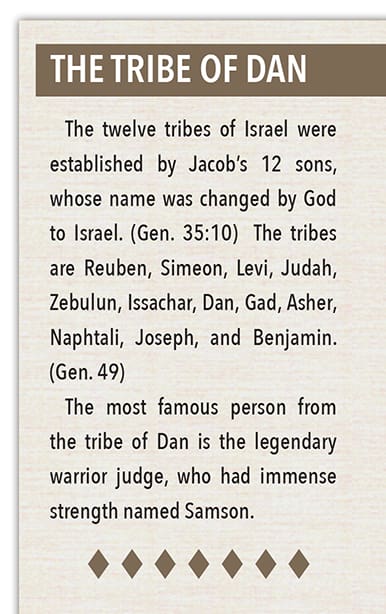
The Apostle Paul (Saul of Tarsus) is one of the most intriguing figures in the Bible. He was from Tarsus, which means a flat basket. Compared to Athens, it was known as a famous university town with all manner of science and art celebrities along with a renowned medical school. Saul is his Jewish name and means desired, although his Roman name Paul, in Latin, means small or humble. I will use the names Saul and Paul interchangeably to reflect their meaning and the timing of events. He is credited with receiving and writing over 20 percent of the New Testament. Paul’s overall given message is one of the testimony of Jesus Christ. Through Jesus’ death and resurrection, humanity’s salvation, as a gift from God, was fulfilled. And through faith in Jesus’ works, eternal life is possible in Him.

Saul was from the tribe of Benjamin and raised a Pharisee. They followed strict adherence to “their father’s oral traditions,” rites, and ceremonies from the law, yet, these repetitions left the inner man unchanged. Pharisees did, however, believe in “the hope and resurrection of the dead.” (See Acts 23:6-8)
Saul led the charge to execute the disciples of the Lord, yet, God made him to be “a chosen vessel unto me [God], to bear my name before the Gentiles, and kings, and the children of Israel.” (Acts 9:15) This truth alone should be of comfort to any who has strayed or has yet to make Jesus Christ their Lord. If Saul can become Paul and be used by God and redeemed, that same potential is available to others.
Most know the Damascus Road story in the Bible (Acts 9), where Saul is knocked off his horse, and the voice of the Lord asks, “Saul, Saul, why persecutest thou me?” Saul, trembling and shaken up as he sat on the ground, asked what he should do? Jesus tells Saul to go “into the city, and it shall be told thee what thou must do.” (Acts 9:6) Unable to see, the men led him by the hand into Damascus.
The Lord instructs Saul to “go into the city,” the very city that he asked the high priest to give him permission to go and bind up any followers of Christ and return them to Jerusalem for punishment. Jesus made it clear that he was to go into the walled place and listen for an utterance of the right and necessary thing to do, which was the exact opposite of what Saul set out to do. He went toward Damascus bent on chaining up followers of ‘the way’ and have them killed. Now he was blind and did not eat or drink for three days.
Damascus is not just an urban area but also a very ancient trading city around Abraham’s time. Damascus means silent is the sackcloth weaver and is located around 136 miles, as the crow flies, northeast of Jerusalem. You could call it the metropolis (mother state) of the country of Syria in Biblical times. And in Isaiah 7:7-8, God declares that Damascus is “the head of Syria.”
How Do We Get To Damascus?
ABRAHAM AND THE PROPHECY OF ISAIAH
Let’s take a journey to get to Damascus by looking at some things associated with it. In Genesis 14, Abraham rescues his nephew Lot from the kings that invaded Sodom, where Lot lived.
We’ll begin the excursion there. Sodom was part of the Canaanite territory. Canaan was the father of the Canaanites. Anyone who lived in the city of Sodom was also called by that name. Canaan was the son of Ham and the grandson of Noah. (Genesis 9) Because of Ham’s actions after seeing his father’s nakedness, Noah cursed Canaan, and therefore we can associate that curse with his territory, which included Sodom. The city is usually mentioned in conjunction with its twin-city, Gomorrah. It was a place submerged in iniquity alongside its close neighbor Sodom. Let’s just say both towns were full of great wickedness in the sight of God.
It is at the Battle of Siddim, or the War of Four Against Five Kings, that starts in Genesis 14:9, where Lot is taken captive from his home.
And when Abram heard that his brother was taken captive, he armed his trained servants, born in his own house, three hundred and eighteen, and pursued them unto Dan. And he divided himself against them, he and his servants, by night, and smote them, and pursued them unto Hobah, which is on the left hand of Damascus. And he brought back all the goods, and also brought again his brother Lot, and his goods, and the women also, and the people.
Genesis 14:14-16 KJV
Something intriguing is that Abraham pursued the four kings and their army to Dan. The word Dan here means a judge, or to judge or govern. It says Abraham divided himself against them at that point of the pursuit, and “by night, smote them.” On the surface, just reading the text, you could understand it to mean he split up his trained servants and attacked at night. Further diving into the text, you get a more in-depth picture than just the physical element. Abraham separated himself and his servants from the captors and their adversity, their wickedness, or you could say their twisted-ness. It could be said that Lot, whose name means covering, envelope, or veil, is what kept Abraham living in peace with Canaanites. Once Lot was forcibly removed, assuredly by his close proximity to his townsmen’s wickedness, that veil of peace was removed, and Abraham was sent to deliver him. God counts faith as righteousness, and although Lot was not living a visibly righteous life from what we know, he believed in God. (2 Peter 2) Abraham’s house was set against the iniquity of those who abducted Lot. Because they had been pulled away from the light, from what was right in the eyes of God. He pursued them to the place of judgment and attacked, knowing he would not succumb to their ways and would choose the Most High as his standard. He literally went into the darkness carrying the light!

Abraham then pursued the four kings to Hobah. Hobah is a city just north of Damascus that means hiding place, where you withdraw and remain hidden, usually out of fear of death. The tetrad alliance recoiled to hide again from the light pursuing them that Abraham carried within. The scripture continues and describes Hobah, “which is on the left hand of Damascus.” Remember Isaiah said that Damascus was the head of Syria. Imagine yourself standing in Damascus and facing east. The direction of north would be your ‘left hand.’ Again we see that the ‘left hand’ also infers the idea of wrapping up or being enveloped in darkness. Hobah was an area on the left-hand side of Damascus encircled in darkness, with a mantle of wickedness over it where the wicked could go and hide from the light. I want to emphasize here that the perception of the area around Damascus was one enveloped with darkness, a lack of knowledge of God, and was so named, but why?
Did Abraham know this about the area? Surely he must have, but it did not stop him. Abraham marched right in with his servants and brought back not only Lot and all of his property and women, but those who would be returned to Abraham’s house! Abraham was exceedingly great and knew God was his strength in his time of need. That assurance is what returned Lot and all his possessions. Therefore, from a spirit of righteousness, he gave a tithe of all that was gained to Melchizedek, Salem’s king, which literally means the king of peace!
Ancient historians, including Nicholas of Damascus, chronicles that Abraham lived in Damascus for some years. Josephus relays that a great man, thought to be Abraham, was the fourth king of the city. Genesis is where what we know of Abraham’s life is laid out, yet these stories are not mentioned.
Let’s look at some additional background on Damascus. As stated earlier, it means silent is the sackcloth weaver, but there is much more to observe. The first use of sackcloth is in Genesis 37:34. Sackcloth was a mesh-like material used to carry grain while also allowing water to flow through and was worn in mourning or humiliation. Its primitive root word, shaqaq, can mean to run about, rush, to be greedy or thirsty, or to seek greedily.
In Isaiah chapter 17, the prophet tells of the burden (prophecy, load, tribute, doom, desire) to befall the city of Damascus. The ancient city will be taken away, removed, it will depart, be put away, no longer a place guarded, and shall become a fallen ruin. Only a remnant will leave behind idolatry and ungodliness.
The burden of Damascus. Behold, Damascus is taken away from being a city, and it shall be a ruinous heap.
Isaiah 17:1 KJV
After further research, some scholars say Damascus is named after a founding king, and the historian Josephus concludes that Uz, grandson of Shem (Noah’s great-grandson), is the namesake. Other authors say the word origins of Damascus are from a word meaning blood and refers to a bag or sack. Biblical scholar Saint Jerome suggests it relates to a cup of blood or one who drinks blood. Still, others speak of the red earth, or never failing red earth covering its fields.
THE STORY OF CAIN AND ABLE
In Genesis, chapter 4, Eve gives birth to Cain (possession), then she bore Abel (breath). Cain was a tiller of the ground, and Abel was a keeper of sheep. In Genesis 4:7, Cain allowed his desire, born out of anger and jealousy over God respecting Abel’s offering and not his, to set a course for murder. That feeling of anger and jealousy ruled his carnal mind, murdering Abel in his heart, and then he proceeded to kill Abel in the earth. Cain did not control his flesh unto peace with God’s standard. The ground, the field, the plain, where Abel was slain now cursed Cain. The earth cursed Cain because she received Abel’s blood. The ground was cursed from Adam, and Cain gave a sacrifice to it, to the lowland, and did not elevate his thoughts, his spirit, by observing peace over the offense his flesh made him feel over Abel. Therefore the curse ordained by God in Genesis 3:17-19 over Cain’s father Adam was upon him. What he worshipped with a sacrifice of blood, his feelings, his anger, his jealousy, was now what he shall eat of. He did not give a gift in right standing with God through peace and repentance but one of self-worship.
Now, this is very interesting. Did you know there are traditions in Syria that claim the field where Cain killed Abel was in Damascus’s territory? There is a bare, rocky mountain called Mt. Qasioun that rises from the plain overlooking the city and is said to be near the place where the first murder occurred. On this mountain, there is no grass or water. One climbing up the stony face will come to a place called the Cave of Blood. It is aptly named if the legendary event did take place nearby.
From these examples, we can see that Damascus has had a tumultuous history. Its existence, possibly dating to the very beginning of Adam and Eve, and duly noted in historical writings as a potential location of Cain killing Abel, is also portrayed as an area steeped in idolatry serving heathen gods, including Baal and Ashtaroth (the star). All this begs us to ask a question. That question is, was there something more to Saul’s petition to the high priest to go to Damascus, and why did he go to the house of Judas?
And there was a certain disciple at Damascus, named Ananias; and to him said the Lord in a vision, Ananias. And he said, Behold, I am here, Lord.And the Lord said unto him, Arise, and go into the street which is called Straight, and enquire in the house of Judas for one called Saul, of Tarsus: for, behold, he prayeth, And hath seen in a vision a man named Ananias coming in, and putting his hand on him, that he might receive his sight. Then Ananias answered, Lord, I have heard by many of this man, how much evil he hath done to thy saints at Jerusalem: And here he hath authority from the chief priests to bind all that call on thy name.But the Lord said unto him, Go thy way: for he is a chosen vessel unto me, to bear my name before the Gentiles, and kings, and the children of Israel: For I will shew him how great things he must suffer for my name’s sake.
Acts 9:10-16 KJV
Saul’s Desire for Death
AN ACIENT CALL FOR MURDER
Now, a city like Damascus physically has many buildings, is cluttered with crosswalks and avenues of travel, and there is constant activity. There is always chaos flowing, distractions, and enticements to keep a person from following through on a task; the wilderness, you could say. If allowed to sway us from the assignment, distractions keep us from integrity with the Lord’s commands. None of us are exempt from this folly; however, the fruit of a righteous man will lean heavily towards integrity to the words he speaks and his obedience to the commands of God. God is the Author and Finisher and makes a way for His sons and daughters to complete the tasks He has sent them to complete. He keeps them on a path of righteousness for His namesake and completes His works in Love. And in Damascus, the mother state, the head of Syria, there was (and still is) a street called Straight and the house of Judas.
Ananias, a disciple, positioned in Damascus, received a vision from the Lord to go and put his hands on Saul so that he may regain his sight. It is interesting that in verse 11, the Lord said to Ananias, “go into the street which is called Straight (level, true), and enquire in the house of Judas.” We do not see in the scripture where God told Saul to go to Judas’ house, if it was the men’s decision leading him, or if that was his intended destination when he set out for Damascus. Still, his path led him to it when he entered the city pre-ordained by God. In amongst all the chaos, the distractions, the exits, and the side roads, there is a street which was laid straight, in truth, and Saul found it while he was blind.
Now, let me do my best to summarize the information given. Saul set out for the silent sackcloth maker, seeking the cup of blood in the never-failing red earth, at the place enveloped with darkness, worshipping heathen gods, with an insatiable desire for murder. He was on a dark, dark path, living and breathing to pursue and snuff out anything or anyone following the way of Jesus Christ. In his mind and in his heart, he must have believed all in the service of God. His desires had dominion over his thoughts, his actions, and his entire life, not the will of God. When it is presented this way, there is no question that what was being planned by Saul was not of God. We know this because of The Word in the Bible and through thousands of years of researching The Word. But first and foremost, we can deduce this from revealing knowledge of Christ through the Holy Spirit.
Saul was a learned man, yet he was blinded by his hatred of Jesus and all those who followed Him. But God! Saul had been chosen by God. That veil of hatred and desire to persecute believers was broken when he was enveloped by the Light of God. The Lord Himself called out his name in Hebrew, twice, to the one who considered himself a Hebrew of the Hebrews. (Philippians 3:5) The Light stopped Saul cold in his tracks and made him go low, humble himself, and pay attention when his name was called. When he rose, he was blinded in his physical body, but his heart was now open for what the Lord needed him to do.
And what of the house of Judas? He was a certain Jew of Damascus, and we don’t know much more. But did you know that Judas is the Hellenized version of the Hebrew name Judah? Both words mean praised, let him be praised.
Saul had a choice to make after all he had been through. Would he prostrate himself and go to the house of praise and pretend to speak to God, or would he choose to pray from a penitent heart and really worship his Maker? Saul chose to pray and worship God, and because of that act of praise, the Lord spoke to him through a vision telling him of Ananias (whom Jehovah has graciously given). Ananias was on assignment in Damascus, and he would be the one to lay hands on Saul to recover his vision in the physical as the Lord recovered it in the spiritual by filling him with the Holy Ghost.
And Ananias went his way, and entered into the house; and putting his hands on him said, Brother Saul, the Lord, even Jesus, that appeared unto thee in the way as thou camest, hath sent me, that thou mightest receive thy sight, and be filled with the Holy Ghost. Acts 9:17
Acts 9:17 KJV
Even in the midst of darkness God provides a way
It is not only in the dark and troubled times that we need to seek God. We should strive to worship Him every day and seek His heart for us, as well as to pray for those who do not know Him to turn and seek Him. Getting instructions from the Lord through the Holy Spirit allows believers to navigate through their daily lives and understand His purpose. God can speak to believers through many different ways, including the Bible, music, dreams and visions, people, the elements, the list goes on and on. Be sensitive to His promptings. Speak to Him and know that He is always listening for your true worship. When one drinks of the deep well of living water, he will never thirst again and obtains everlasting life.
But the hour is coming, and now is, when the true worshipers will worship the Father in spirit and truth; for the Father is seeking such to worship Him. God is Spirit, and those who worship Him must worship in spirit and truth. John 4:23-24
John 4:23-24 KJV
All to his glory. Blessings.
Feature Image: Bigstock.com | Unless otherwise attributed, scripture quotations are taken from the KING JAMES VERSION of the Bible.
